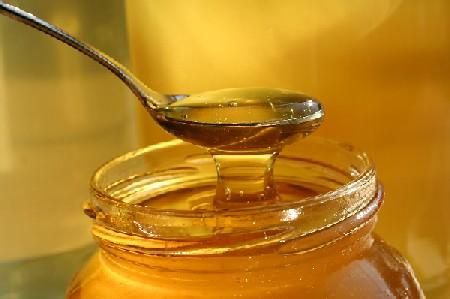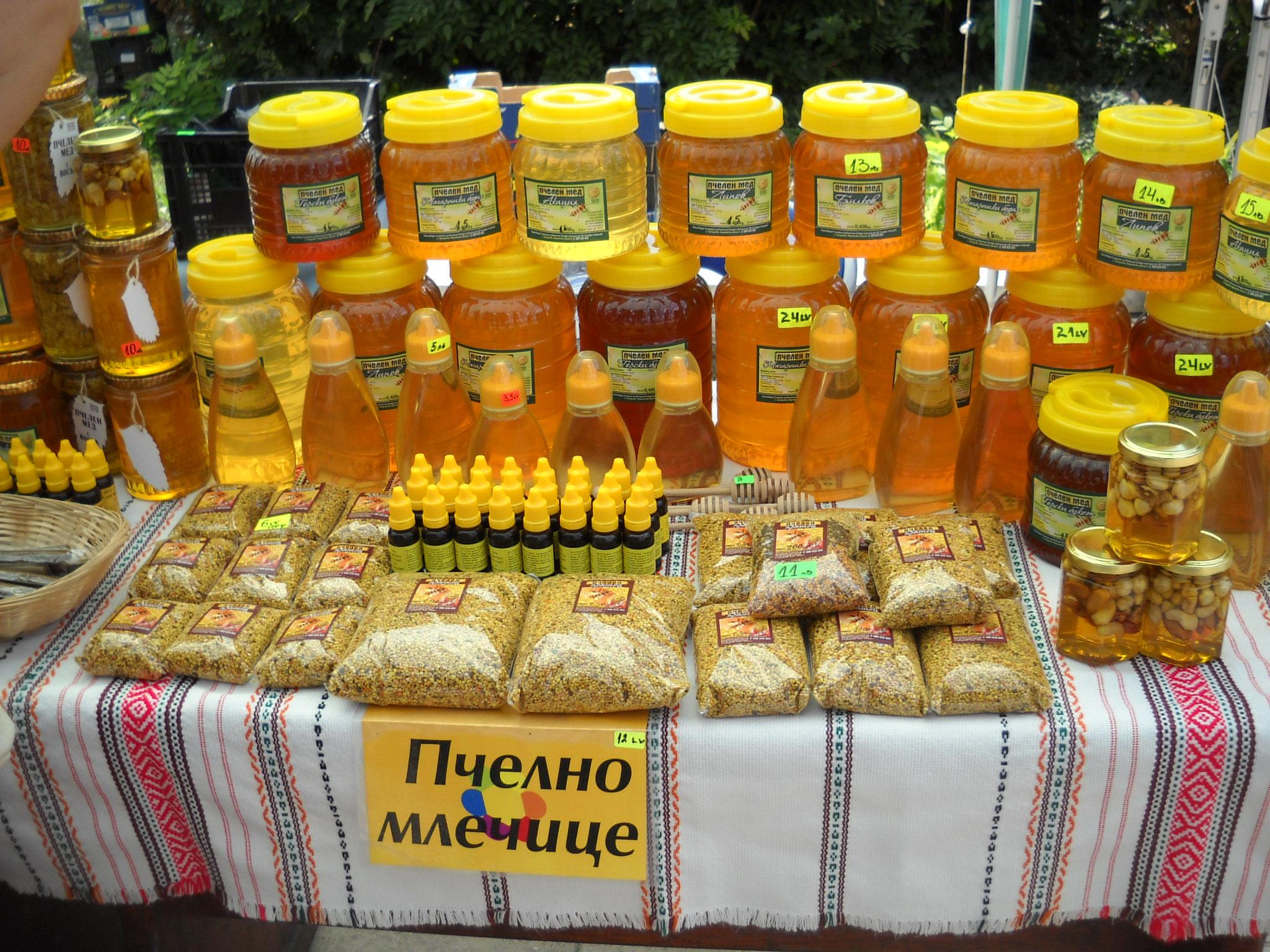On June 22, prior to Enyovden (Midsummer Day) which is the traditional herb feast, Bulgarian bee-keepers launched a campaign aimed at promoting the benefits of honey consumption under the motto The Power of Honey. The official opening was held in Sofia, but the campaign will also cover four of the biggest Bulgarian cities-Varna, Plovdiv, Burgas and Veliko Tarnovo. The Honey Weeks will last until the Beekeeper’s Day (Saint Procopius) on July 8.
It is no accident that the two feasts-the Herb Day and the Beekeeper’s Day are so close in the calendar, says for Radio Bulgaria Deputy Chairman of the Bulgarian Organic Beekeeping Association Dimo Dimov. The wide variety of the Bulgarian herbs guarantees exceptionally healthy and tasty honey which is among the best ones in Europe and worldwide. Most of the honey produced in Bulgaria is exported and is often used as additive to the honey imported from Latin America due to its high-quality, claims the Chairman of the Association of Professional Beekeepers Efrem Mollov.
 The power of the Bulgarian honey lies in the existence of several of the so-called boutique types- honey from a specific honey-yielding plant such as acacia, linden-tree, thistle, thyme, blackberry, lavender, coriander, clover, etc. Moreover, the demand of organic honey has been constantly on the rise. Although Bulgaria is a small country in terms of population and territory, it places among the five European countries with highest number of bio-certified bee families. Perhaps Bulgaria even tops the world ranking, Dimo Dimov adds, stressing on the fact that such comparison is irrelevant, because the criteria for organic honey is different on other continents. Organic beekeeping treats the insects better and guarantees a cleaner and healthier product, contends Mr Dimov and adds:
The power of the Bulgarian honey lies in the existence of several of the so-called boutique types- honey from a specific honey-yielding plant such as acacia, linden-tree, thistle, thyme, blackberry, lavender, coriander, clover, etc. Moreover, the demand of organic honey has been constantly on the rise. Although Bulgaria is a small country in terms of population and territory, it places among the five European countries with highest number of bio-certified bee families. Perhaps Bulgaria even tops the world ranking, Dimo Dimov adds, stressing on the fact that such comparison is irrelevant, because the criteria for organic honey is different on other continents. Organic beekeeping treats the insects better and guarantees a cleaner and healthier product, contends Mr Dimov and adds:
“The conventional beekeeping uses substances which are based on the latest achievements of the chemical industry and the veterinary medicine. Feeding the bees with such substances equals the treatment of plants with various chemicals-pesticides, herbicides, fungicides, etc. However, the organic beekeeping uses organic acids only which can also be found in the honey and the honey products anyway. We use essential oils and plants which produce substances used before the appearance of the synthetic veterinary medicine. The bees should not be fed with synthetic foods and sweeteners and they must collect pollen in clean agricultural regions planted mainly with wild honey-yielding vegetation, far from busy motorways and other sources of pollution.”
The mountain and semi-mountain Bulgarian regions, which actually cover one-third of the country’s territory, provide best opportunities for organic beekeeping amidst clean nature. In fact, Bulgaria is among the three European countries with biggest variety of herbs. The honeydew honey for example is the most valuable one and does not need to be certified, because it is yielded from the English Oak (Quercus Robur) which grows in abundance in our mountain regions, mainly in Stranja Mountain. That is why honeydew honey is also known as Strandja honey.

Each year Bulgaria exports between 5,000 and 6,000 tons of honey of which nearly one third is organic. However, 2014 is likely to be a bad year for the Bulgarian beekeeping sector due to the humid spring, accompanied with many storms, torrential rain and hailstorms.
“The rainfalls currently obstruct our business”, beekeeper Dimo Dimov regrets. The acacia tree shed quickly its blossoms and the bees could not benefit at all. The linden tree and the clover are blossoming now, but the bees do not go out during rainfalls. The flower nectar is not thick enough and is quite watery and the bees usually do not collect thin nectar. They collect nectar from plants where humidity does not exceed 45%-55%. So far we failed to make good yields and the year is halfway thorough. If the rainfalls stop and weather is mainly sunny, we will try to make up for the lost quantities. Our last hopes to produce more honey are linked with the linden tree and later with the sunflower.
English version: Kostadin Atanasov
One of the key steps in the expansion of the underground gas storage at Bulgaria's Chiren gas storage facility, the construction of the above-ground infrastructure and the installation of new compressors, has already been completed, Energy Minister..
Transformation – this is the word that most accurately describes the current state of the Bulgarian industry. According to an analysis of sectoral data for the period from 2008 to the beginning of 2024, made by the Institute for..
Tourism is one of the sectors in Bulgaria ready to the greatest extent to smoothly continue working after Bulgaria joins the Еurozone , the executive director of the National Tourism Board, Dr. Polina Karastoyanova, believes. In tourism, and at this..

+359 2 9336 661
